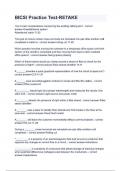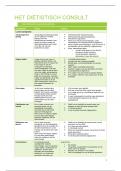Benetti S, Ogliastri E, Caputo A. Distributive/integrative negotiation strategies in
cross-cultural contexts: a comparative study of the USA and Italy. Journal of
Management & Organization. 2021;27(4):786-808.
https://doi.org/10.1017/jmo.2020.47
Holmes., Y., M., Lauren, Skinner, Beitelspacher., Bryan, Hochstein., Willy, Bolander.
(2017). “Let's make a deal:” Price outcomes and the interaction of customer persuasion
knowledge and salesperson negotiation strategies. Journal of Business Research,
78:81-92. https://doi.org/10.1016/J.JBUSRES.2017.04.009
Shan W, Keller J, Joseph D. Are men better negotiators everywhere? A meta-analysis of
how gender differences in negotiation performance vary across cultures. J Organ Behav.
2019; 40: 651–675. https://doi.org/10.1002/job.2357
Sherwood, C. N. C. (2022). A Lie Is a Lie: The Ethics of Lying in Business Negotiations.
Business Ethics Quarterly, 32(4), 604–634. https://doi.org/10.1017/beq.2021.41
Trippe, B., & Baumoel, D. (2015). Beyond the Thomas–Kilmann model: into extreme
conflict. Negotiation Journal, 31(2), 89–103. https://doi.org/10.1111/nejo.12084
Trombini, C. & Akinola, M. & Riley Bowles, H., (2024) “Self-Affirmation Increases Men’s
Openness to Women’s Dominance Behaviors”, Negotiation and Conflict Management
Research 17(2), 106-129. https://doi.org/10.34891/1a9n-p522
Warsitzka, M., Zhang, H., Beersma, B., Freund, P. A., & Trötschel, R. (2024). Expanding
the pie or spoiling the cake? How the number of negotiation issues affects integrative
bargaining. Journal of Applied Psychology, 109(8), 1224–1249.
https://doi.org/10.1037/apl0001149
Ye, Z., Lelieveld, GJ. & van Dijk, E. Evaluating Negotiators Who Deceptively
Communicate Anger or Happiness: On the Importance of Morality, Sociability, and
Competence. J Bus Ethics (2024). https://doi.org/10.1007/s10551-024-05824-7
, 2
Distributive/integrative negotiation strategies in cross-cultural contexts: a
comparative study of the USA and Italy. Journal of Management & Organization
(Benetti S, Ogliastri E, Caputo A)
This study examines how cultural differences influence negotiation strategies in two Western
countries: the USA and Italy. It seeks to determine:
1. Whether American-developed negotiation models (distributive and integrative)
apply in the Italian context.
2. How negotiation patterns differ between these countries, focusing on cultural traits.
Theoretical Framework
● Negotiation Strategies:
○ Distributive Negotiation: Competitive, zero-sum (win-lose) approach
focused on maximizing individual outcomes.
○ Integrative Negotiation: Collaborative (win-win) approach seeking mutual
gains by focusing on shared interests.
● Cultural dimensions (Hofstede’s model) illustrate how culture shapes negotiation
behavior: (power distance, individualism/collectivism, uncertainty avoidance, and
masculinity/femininity) on cultural dimensions.
● Individualistic cultures (US): often emphasize personal goals and tend to focus
more on distributive strategies
● Collectivist cultures: prioritize relationships and mutual benefits, aligning closer to
integrative strategies.
● High uncertainty avoidance + preference for emotional expressiveness (Italy):
Influence Italians to rely more on personal connection and emotional display during
negotiations, a marked contrast from the US style, which values objectivity and
technical criteria.
Methodology
● Sample: 214 cross-cultural observations, incl. 80 from the USA and 134 from Italy.
● Data Collection: Interviews with foreign managers about their experiences
negotiating with Americans or Italians.
● Analysis: Latent Class Analysis (LCA) identified clusters of negotiation prototypes
based on observed behaviors.
, 3
Key Findings
Classes based on response patterns, assuming that responses to survey questions are
influenced by unobserved latent variables (negotiation behaviors shaped by culture).
● Three Negotiation Prototypes:
○ Distributive Negotiation (33.45%): Predominantly Italian. Rivals treat each
other competitively, focusing solely on individual gains.
○ Emotional Integrative Negotiation (29.59%): Predominantly Italian.
Emotional expressions are central, paired with a collaborative focus on
mutual gains.
○ Impersonal Integrative Negotiation (36.96%): Predominantly American.
Focus on mutual gains but avoids emotional expression and emphasizes
technical criteria.
● Cultural Influences:
○ Italian Style: Reflects high emotional expressiveness and a mix of
competitive and collaborative approaches.
○ American Style: Prioritizes technical objectivity and impersonal collaboration,
aligning with high individualism.
Implications
● Cultural Differences:
○ Emotional expressiveness in Italy contrasts with the pragmatic and
impersonal American approach.
○ Italian negotiators often blend competitive and collaborative strategies.
● Practical Insights:
○ Effective negotiation training should incorporate cultural and emotional
intelligence.
○ Companies should adapt negotiation tactics to align with cultural norms of
counterparts.
Conclusion
This study highlights the cultural nuances in negotiation strategies between Italy and the
USA. The introduction of the emotional integrative prototype underscores the role of
emotions in negotiations and opens avenues for further exploration into cultural and
emotional factors in cross-cultural business contexts.










